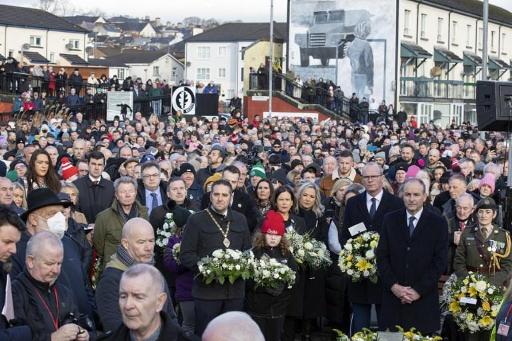Victims’ portraits and white roses featured prominently at the head of a procession held on Sunday in Londonderry to commemorate the 50th anniversary of “Bloody Sunday,” the day British soldiers mowed down 13 people in one of the darkest moments in the Northern Ireland conflict.
It was “a massacre on our streets,” said Michael McKinney, whose brother was among those gunned down in the peaceful civic rights demonstration that ended in a bloodbath on 30 January 1972 in Londonderry, Northern Ireland’s second largest city.
“We have travelled a long road from the horror of that day,” McKinney said, stressing that families were still demanding “the prosecution of the uniformed criminals who murdered our people on our streets.”
Led by children holding white roses, representing each of the families that lost a member in the massacre, the procession had arrived shortly before McKinney spoke at the monument in honour of the victims.
Related News
- Ukraine: US, EU call on energy producers to join them in looking for extra gas for Europe
- Complaint against low vaccination rate among elderly people in Bulgaria amid spread of Omicron
Taoiseach (Prime Minister) Michael Martin, the first head of government of the Republic of Ireland ever to attend the annual ceremony, was among those laying wreaths at the monument, along with his Foreign Minister, Simon Coveney.
A second march was scheduled for Sunday afternoon in the streets of Derry – as many of the city’s residents prefer to call the city, rather than the official name of Londonderry, which they see as synonymous with British domination – to coincide with the time when the British Parachute Regiment opened fire on the Catholic demonstrators.
One of the main effects of Bloody Sunday was to prompt many young Catholics to join the Irish Republican Army (IRA), a paramilitary group opposed to the British presence on Irish soil.
The three-decade-long Northern Ireland conflict came to an end a quarter of a century later with the signing of the 1998 Good Friday Agreement, by which time it had cost 3,500 lives.

